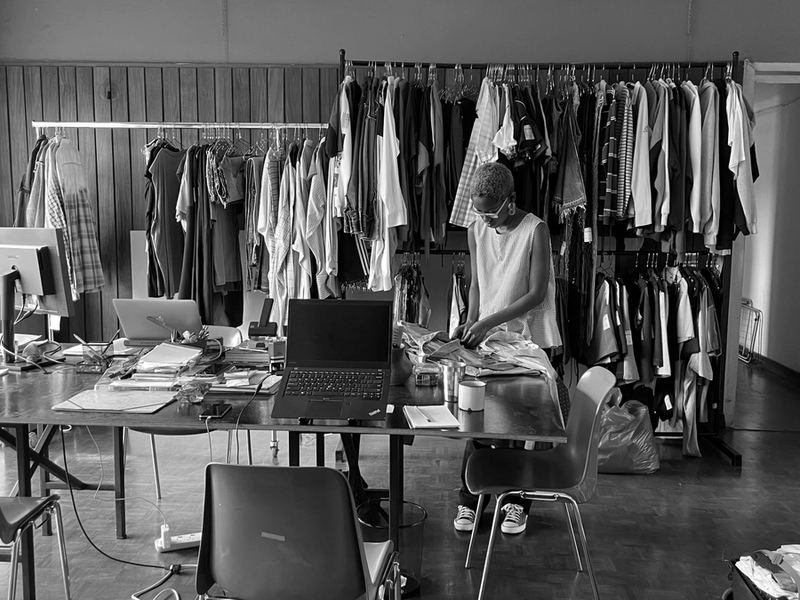The supply chain of fast fashion ends in the Global South, in second-hand clothing markets, in water bodies, landfills, deserts, forests, and beaches. In 2023, disturbing images of fast fashion dumpsites in Kenya, Ghana, and Chile went viral — waste colonialism is common knowledge.
With second-hand imports and cheap imitations from the Global North replacing local textiles and fashion, the once prosperous Ugandan textile industry has suffered significantly since the 1970s. Local economies — and the environment — are under threat.
In their studio in Kampala, BUZIGAHILL redesigns second-hand clothes (fast fashion waste) from Europe and North America using complex, labour-intensive upcycling processes. In a defiant act they call “RETURN TO SENDER”, their redesigned garments are sold back to where they originated in the Global North.
For the triennial, BUZIGAHILL recreates their production studio and performs the act of “RETURN TO SENDER”. This rebellious performance represents the ingenuity with which Africans across the continent use waste as a resource.
Sharjah plays a key geographic and financial role in the second-hand clothing supply chain. Bales of unwashed second-hand clothing were specially acquired for the performance from a sorting facility in one of Sharjah’s Free Zones, where migrant workers unpack, sort, and repack unwanted clothes collected in Europe.
“RETURN TO SENDER” represents BUZIGAHILL’s ability to participate in a global context of art and fashion by creating a critical and desirable product. It is a collective refusal to remain stuck at the end of the second-hand supply chain – they are returning to sender.
